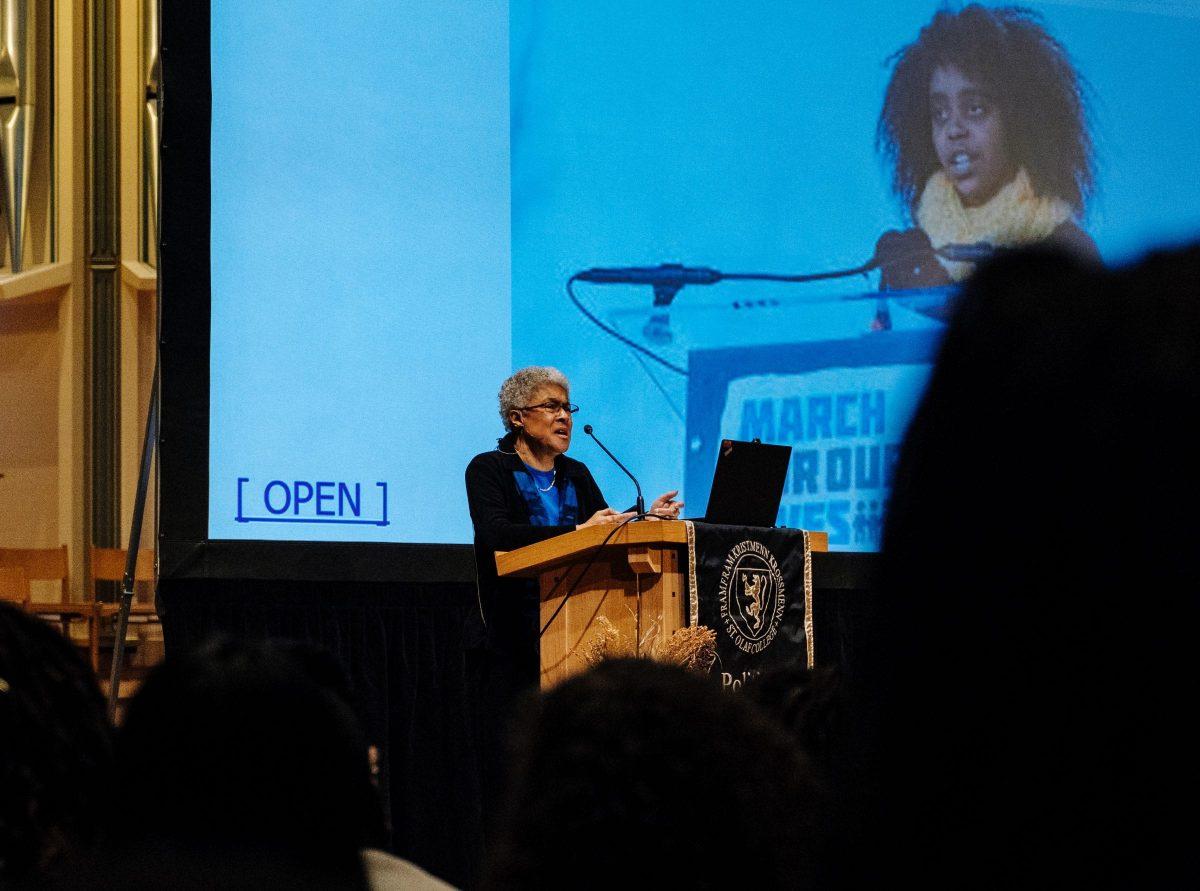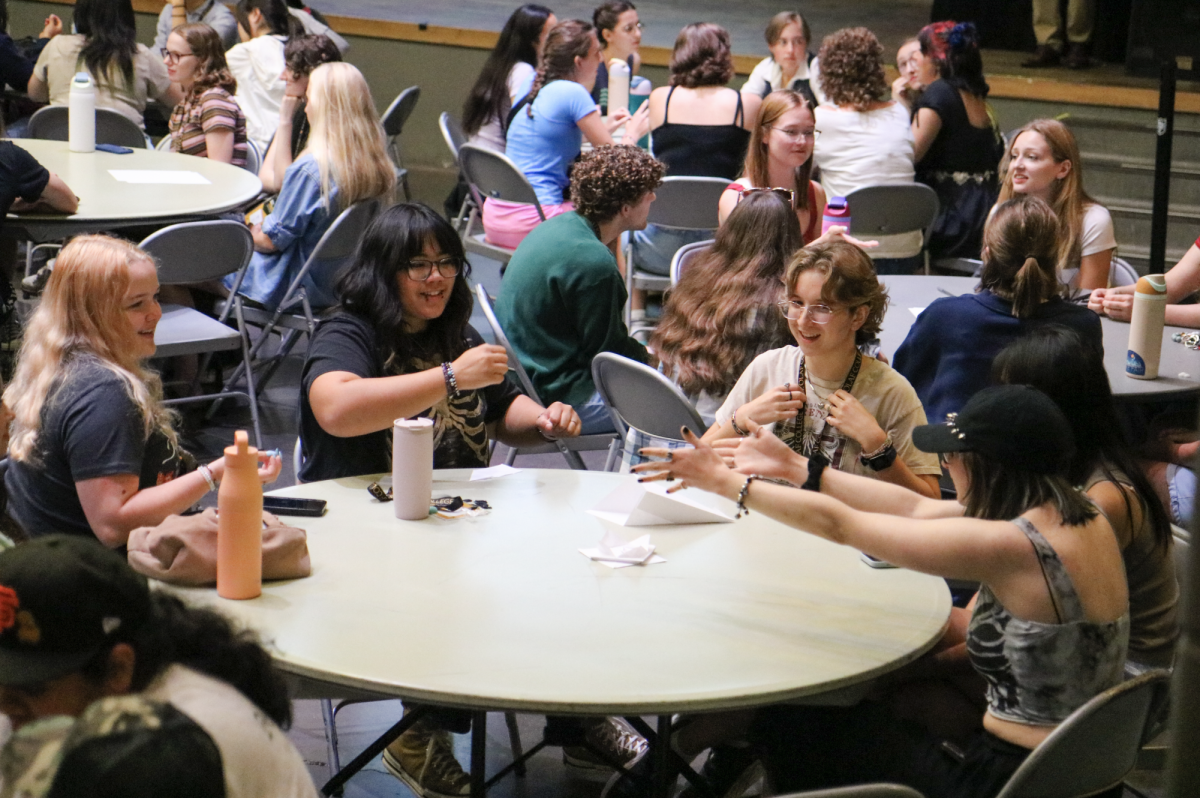Patricia Hill Collins gave an impassioned speech on Black feminism and intersectionality in Boe Chapel on Friday, Oct. 26. Her lecture, titled “We Who Believe in Freedom Cannot Rest: Lessons from Black Feminism,” examined how intersectionality and flexible solidarity shape the meaning of freedom in America.
Political Awareness Committee (PAC) coordinator Lilia Vanessa Martinez ’20 began the event with a moment of silence for Native Americans who lost their lives defending their ancestral land that St. Olaf stands on today. Martinez then touched on the timliness of Collins’ lecture at St. Olaf, and the “importance to express marginalized voices.”
Collins is a social theorist who specializes in issues of race, social class and gender. She is the author of the award-winning book “Black Feminist Thought: Knowledge, Consciousness, and the Power of Empowerment,” has taught at a various universities and has lectured around the world.
Boe was packed with students from both Carleton and St. Olaf, as well as Northfield residents.
“I was excited to hear her speak about the issues colored women face today and how we can better support each other,” Evelynn Slater ’22 said.
Collins’ named her lecture after a song titled “Ella’s Song,” written by Sweet Honey in the Rock about activist Ella Baker. This tune served as a rallying cry for activists during the Civil Rights movement. Collins used this song to frame her lecture.
“I needed to hear this song and this message right now,” she said.
Using Ella Baker and other female role models as her vehicle, Collins tackled the ongoing struggles of Black women.
She discussed the importance of intersectionality as an analytical framework and the harmful nature of viewing the theory as problematic. The misconception that intersectionality is the cause of racism leads to “it being misunderstood as narrow identity politics that creates social divisions,” Collins said.
Instead, intersectionality can progress movements and “allows us to acknowledge the issues in regards to race and think of solutions,” Collins said.
She told a story about a former student who accused her of being racist because Collins talked so much about race. Laughing as she recalled the story, Collins used this moment to teach about the danger of not discussing race and the issues that follow. She discussed the separation of families during the slave trade, Japanese internment camps and, most recently, at the Mexico-U.S. border.
Collins then talked about flexible solidarity and the importance of remembering that we all have one goal. She stressed the need to recognize the societal institutions that “want to install walls and borders.”





